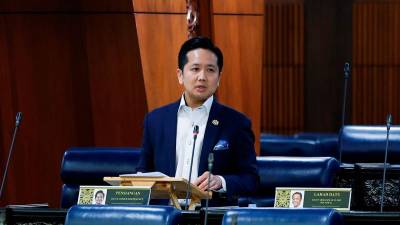PETALING JAYA: The Agriculture and Food Security Ministry has stepped up enforcement to curb pork smuggling, with more than 750 tonnes worth RM3.05 million seized since last year. Deputy Minister Datuk Arthur Joseph Kurup told the Dewan Rakyat yesterday that from last year to July this year the Malaysian Quarantine and Inspection Services Department (Maqis) detected 24 smuggling attempts involving 640 tonnes of pork.
The Veterinary Services Department also recorded 18 seizures of unapproved carcasses and suspected contraband pork amounting to 114 tonnes, he added.
“Enforcement is carried out in collaboration with the Border Control and Protection Agency, Customs Department, the police and Armed Forces. Offenders face stern action under the Malaysian Quarantine and Inspection Services Act 2011 (Act 728) and the Animals Act 1953 (Act 647), including heavy fines and prosecution.”
Kurup acknowledged that the industry was under severe strain, noting the national pig population had dropped from 1.86 million in 2020–2021 to 1.24 million last year due to African swine fever and rising feed costs.
To stabilise supply, he said the government had facilitated the import of 1,600 live pigs from Sarawak into Peninsular Malaysia through Port Klang. Long-term measures include modern pig farming through designated pig farming areas with higher biosecurity standards, such as a RM26 million project in Tongod, Sabah.
He added that the ministry has been engaging farmers, abattoirs and importers through continuous consultations to address production challenges and strengthen disease control.
Malaysia’s current self-sufficiency level for pork stands at 67.8% between 2020 and 2024. Kurup said stricter guidelines would be made compulsory for small farms, requiring them to adopt modern closed-house systems.
“Increasing local output is critical, both to reduce reliance on imports and to shield the nation from foreign disease threats. Pork is a key protein source, especially for non-Muslim communities. Ensuring stable supply will also help ease pressure on other protein prices, including chicken, beef and fish.”
Kurup was responding to a question from Sim Tze Tzin (PH-Bayan Baru) regarding Maqis’ enforcement actions on the importation and illegal smuggling of pork, particularly from Thailand and other countries with outbreaks of the Streptococcus suis and African swine fever, as well as the number of arrests made in relation to illegal pork smuggling activities at all national entry points this year.
He said import control carried out by Maqis is through a document inspection mechanism, including the requirement for import permits and veterinary health certificates, as well as physical inspections of containers at the country’s entry points.
In addition, sampling of pork products is also conducted to ensure they are free of diseases before being allowed entry.
